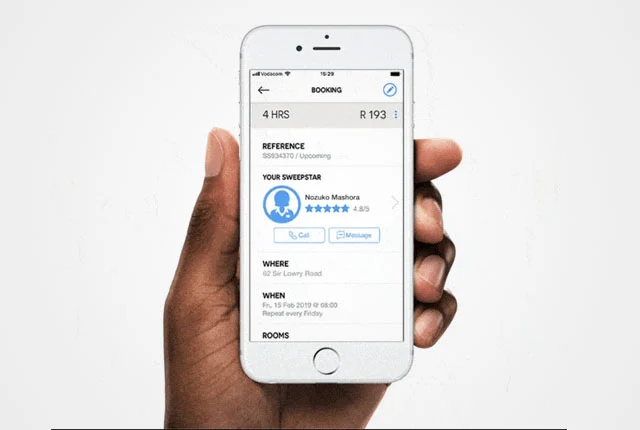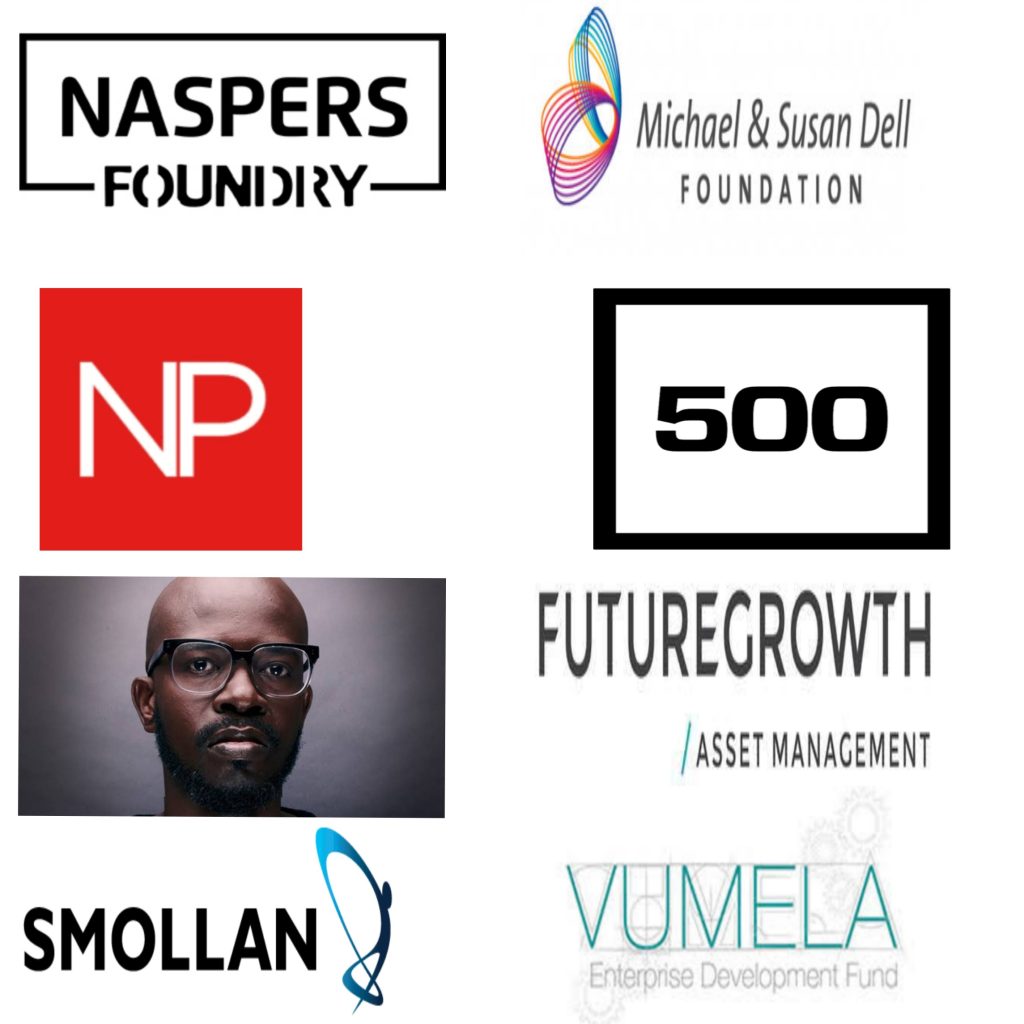Aisha Pandor, a human geneticist by profession, never in her wildest dreams expected to end up as an entrepreneur.
It all happened by accident 7 years ago, when Pandor and her software engineer husband, Alen Ribic, started looking for someone to take care of their young daughter in the family’s Johannesburg home.

They struggled to find anyone who could assist them, it frustrated them that it took so long.
The Story Of How Ouma Greyvenstein Turned 30 British Pennies Into Ouma Rusks
For the most part, many great ideas are born out of necessity…..this continued frustration got Pandor and Ribic brainstorming a couple of ideas on how technology can connect clients with domestic workers.
They thought they could build something like Uber that uses technology for connecting domestic workers looking for work with clients like them.

To bring the idea to life, they took a huge leap of faith and quit their jobs. On top of that, they sold their house and car, thereafter moved to the house of Pandor’s parents.
“its only a temporary solution,” so they thought, not knowing they would be residing there for over 4 years.
During that time, they created, designed, marketed and launched SweepSouth, a booking platform that quickly connects clients and domestic workers — including gardeners, child-care providers and cleaners.
The Billions Motsepe Paid To Acquire 100 Of Tymebank
As soon as Pandor and Alen thrashed themselves in the entrepreneurial jungle, they realized its nothing like the academic world. The early days of SweepSouth were fast paced and filled with uncertainty.

Pandor’s personal life took a hit too, because some family members and her friends just couldn’t understand why she would throw away her PhD and leave a well paying job over that idiotic idea of launching SweepSouth.
According to Pandor, she and her husband made mistakes in the beginning and looking back, they would probably do things much differently.
They went through what they deemed as “unnecessary personal discomfort” in starting their business, because initially they thought being an entrepreneur, was all about showing investors how hungry they were, and far they were willing to go to ensure their company became a success….
time and experience threw that theory out of the window.
How Khathutshelo Mufamadi Quit His Engineering Job & Founded Droppa

The on-demand platform lists available domestic workers for clients to book, whereby SweepSouth takes a marginal commission from the transaction.
Like ehailing companies, the domestic workers are not directly employed by SweepSouth, they only use the platform to make bookings and arrangements.

The two went from working on their dining-room table – sitting all day and night, working on SweepSouth’s business plan – to going to a few domestic workers they were interviewing themselves.
How Arthur Ginsberg Launched Chappies, South Africa’s Favorite Bubblegum Brand
At some point, they were cleaning the houses themselves but now, those days are over, SweepSouth boasts over 40 000 active users.
7 years later, the company has grown significantly, tagging many investors along the way. So far, the Johannesburg based start-up has raised funds from these investors below:

It has connected thousands of domestic workers(termed SweepStars) with clients across Johannesburg, Durban, Cape Town and Pretoria.
Normally, the SweepSouth charges about R38 per hour with no hidden costs. The domestic workers get in-between 65% and 85% of that amount.
Richard Maponya|| The Importance of Saving Money & Starting Small

According to Pandor, all the domestic workers are predominantly single mothers and before they can get on the platform, they’re interviewed. They can up to R8 000 plus tips from satisfied clients, this beats typical earnings of domestic workers.
Today, SweepSouth employs 40 people and has plans to launch their services in other African countries including the likes of Kenya, Botswana, Nigeria and Ghana.




Thank you for the auspicious writeup. It in fact was a amusement account it.
Look advanced to far added agreeable from you!
However, how can we communicate?
Here is my webpage … vpn special
Asking questions are in fact nice thing if you are not understanding something entirely, however this article
gives good understanding even.
Feel free to visit my web site – vpn special code
I think the admin of this website is actually working hard in favor of his web site,
for the reason that here every information is
quality based data.
my site … vpn special coupon code 2024
We’re a group of volunteers and starting a brand
new scheme in our community. Your site offered us with valuable information to work on. You have performed an impressive process and our whole neighborhood
shall be grateful to you.
Feel free to surf to my website – vpn special coupon code 2024
My spouse and I stumbled over here from a different page and thought I should check
things out. I like what I see so now i’m following you.
Look forward to looking over your web page yet again.
My web blog vpn coupon 2024